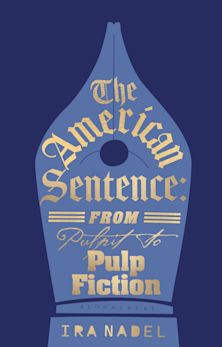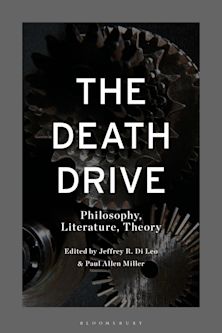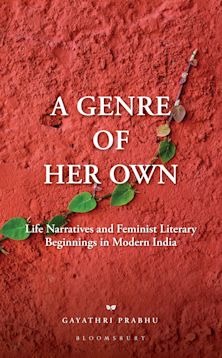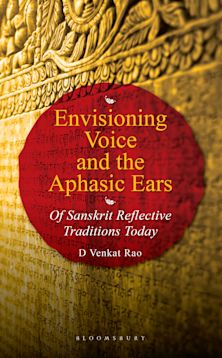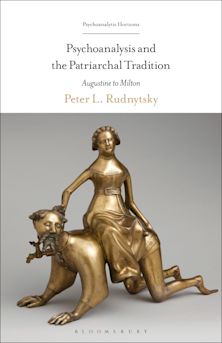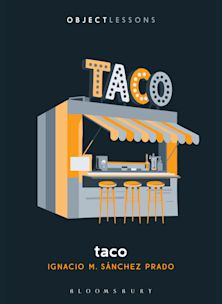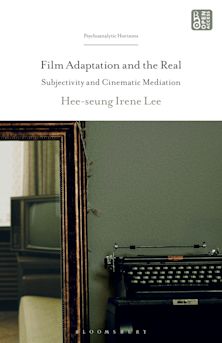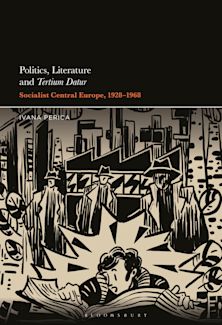- Home
- ACADEMIC
- Literary Studies
- Literary Theory
- The Emergence of Literature
The Emergence of Literature
An Archaeology of Modern Literary Theory
The Emergence of Literature
An Archaeology of Modern Literary Theory
You must sign in to add this item to your wishlist. Please sign in or create an account
Description
The Emergence of Literature is an extension and reworking of a series of significant propositions in philosophy and literary theory: Jean-Luc Nancy and Philippe Lacoue-Labarthe's examination of the concept of the literary absolute; Martin Heidegger's destruction and Giorgio Agamben's archaeology of the metaphysics of will; Maurice Blanchot's delimitation of the space of literature; and Michel Foucault's archaeology of literature. Its core contribution to the history of theory is to understand the literary absolute not simply as philosophical concept, but as a paradigm that delimits the horizon for currents of literary theory through the course of the 20th century where the literary criteria change from the theme of sincerity to the theme of the death of the author.
Stretching from Kant to Hegel, from Hölderlin to the Early German Romantics, from John Stuart Mill to New Criticism, from Benjamin to Barthes, The Emergence of Literature examines the relation between continental philosophy and literature in the post-Kantian era.
Table of Contents
Note on Text
List of Abbreviations
Introduction: Writerly Necessity
Part 1 The Emergence of Literature as Absolute
1. Literature as Pure Writing
2. The Literary Absolute
3. The Born Poet
Threshold
Part 2 The Paradigm of Writerly Necessity
4. Between the Subject and Language
5. The Paradigm of Writerly Necessity
6. The Writer Who Cannot Not-Desire to Write
Threshold
Part 3 Literary Criticism
7. The Author (Sincerity)
8. The Death of the Author (Intransitivity)
9. The Politics of a priori Poetry
Threshold
Part 4 Aesthetics
10. Literature in the Age of Criticism
11. The Critic
12. To Write as an Intransitive Verb
Threshold
Afterthought on Literary Inoperativity
Conclusion
Notes
Bibliography
Index
Product details

| Published | Jan 23 2020 |
|---|---|
| Format | Ebook (PDF) |
| Edition | 1st |
| Extent | 248 |
| ISBN | 9781501354267 |
| Imprint | Bloomsbury Academic |
| Publisher | Bloomsbury Publishing |
About the contributors
Reviews
-
[It] provides a meticulous resource and sets an ambitious standard for all those who question how to think about literature.
French Studies
-
Jacob Bittner's The Emergence of Literature provides a welcome and rigorous reassessment of modern literature and theory's lost or 'unthought' unifying paradigm. ... In a field that has tended in recent years toward fragmentation and an increasing lack of communication between new schools, this is invigorating reassertion of a unifying paradigm that will serve as the basis for future dialogue on literary studies' most significant questions.
Style
-
At a time when literary writings are studied primarily as manifestations of a given reality (moral needs, ecological dangers, racial problems, mental issues), Jacob Bittner's The Emergence of Literature offers a timely return to a critical tradition - running from the Schlegel brothers, Kant and Hölderlin over Heidegger and Blanchot to Barthes and Agamben - that chooses to define literature in its own terms. Taking his central cue from Lacoue-Labarthe and Nancy's L'absolu littéraire, Bittner aims for what he terms an archeology of literary theory, an understanding of the conceptual framework that made possible the idea that the true poet cannot but write poetry and that to write means to write 'intransitively', without reference to an external object. Bittner's book is by no means an easy read, but given the complex philosophical and aesthetic issues that he deals with, that in itself can only be taken as a compliment. A proper historiography of literary theory is one of the larger projects that the field of literary studies is in need of: I take this book to become a central contribution to that collective endeavor.
Jürgen Pieters, Professor of Literary Theory, Ghent University, Belgium
-
Bittner's work represents a genuinely original and interesting contribution both to contemporary literary-philosophical and literary-theoretical debate and to intellectual-historical accounts of the development of literary thought and practice since the Romantic era.
Ian James, Head of Department of French and Reader in Modern French Literature and Thought, University of Cambridge, UK, and author of The New French Philosophy (2012)
-
This book is the most thorough exploration of the 'Literary Absolute' I know – and a condensed intellectual history of continental thought in modernity.
Christian Benne, Professor of Comparative Literature, University of Copenhagen, Denmark, and editor of Nietzsche und die Lyrik : Ein Kompendium (2017), Athenäum and Orbis Litterarum
-
A remarkable intellectual feat, based on an in- depth knowledge of continental philosophy and modern literary theory.
Recherche littéraire/Literary Research

ONLINE RESOURCES
Bloomsbury Collections
This book is available on Bloomsbury Collections where your library has access.












